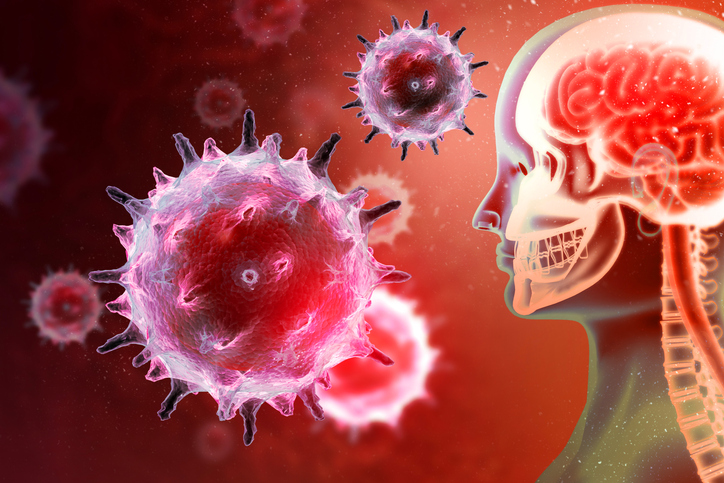Young Soccer Player Dies of Encephalitis. How We Can Be Proactive

By Joy Stephenson-Laws, J.D., Founder
When someone young, healthy and athletic suddenly passes, it’s a sad reminder on how fragile life can be. Dashawn Stanton, a 25-year-old soccer player from my home country, Jamaica, recently died from encephalitis.
What is encephalitis?
To put it simply, encephalitis is inflammation of the brain. More specifically, “Encephalitis is inflammation of the active tissues of the brain caused by an infection or an autoimmune response. The inflammation causes the brain to swell, which can lead to headache, stiff neck, sensitivity to light, mental confusion and seizures,” according to John Hopkins Medicine.
The swelling in the brain may destroy nerve cells and cause bleeding in the brain as well as brain damage.
There is not really any information on how Stanton got encephalitis. According to one report, he started experiencing severe headaches. From there, things really took a turn for the worse. He was taken to the hospital where they confirmed that he had an infection in his brain. He eventually fell into a coma, and doctors confirmed he had some brain damage. His sister said that doctors gave him a 40 percent chance of waking up from the coma.

What causes encephalitis?
The National Institutes of Health (NIH) reports that encephalitis is usually caused by a virus such as West Nile virus, adenovirus, echovirus, herpes simplex viruses and more.
“In the United States, the most common causes of viral encephalitis are herpes simplex virus (HSV), West Nile virus, and the enteroviruses,” (NIH).
What about COVID-19?
“Although neurologic complications have been noted in previous human coronavirus infections (3–5), there are few in-depth investigations for neurologic syndromes [such as encephalitis] associated with SARS-CoV-2 infection,” reports the Centers for Disease Control and Prevention (CDC).
Encephalitis is actually pretty rare. And just because you contract a virus does not mean that you will get encephalitis. Many of the viruses that can lead to encephalitis are very common and are usually mild.
“Determining the true incidence of encephalitis is impossible, because reporting policies are neither standardized nor rigorously enforced. In the United States, several thousand cases of viral encephalitis are reported to the CDC each year…,” reports Medscape.
But, again, it is relatively rare.
Encephalitis may also be caused by an autoimmune disease, bacteria from Lyme disease, certain parasites and more.
I previously blogged about a very odd story in which a young man ate a slug, got rat lungworm disease and encephalitis. I also discussed La Crosse encephalitis (LACV), which is a virus that is transmitted to humans through the bite of an infected mosquito. In severe cases, the virus may affect the nervous system and cause encephalitis.
It is also important to wear bug repellent and protect yourself from mosquitoes, and it is also recommended to stay up to date on your vaccinations.
Best defense is immune defense.
I’m a firm believer that keeping your immune system in top shape is one of the best ways to protect yourself from many types of illness. A healthy, nutrient-rich diet is key in maintaining the health of the immune system.
To learn specific proactive steps on how you can keep your immune system in top shape, check out this pH Labs blog.
Enjoy your healthy life!
Disclaimer: This article is not intended to provide medical advice. Please consult with your doctor or another competent healthcare practitioner to get specific medical advice for your situation.
The pH professional health care team includes recognized experts from a variety of health care and related disciplines, including physicians, attorneys, nutritionists, nurses and certified fitness instructors. This team also includes the members of the pH Medical Advisory Board, which constantly monitors all pH programs, products and services. To learn more about the pH Medical Advisory Board, click here.







